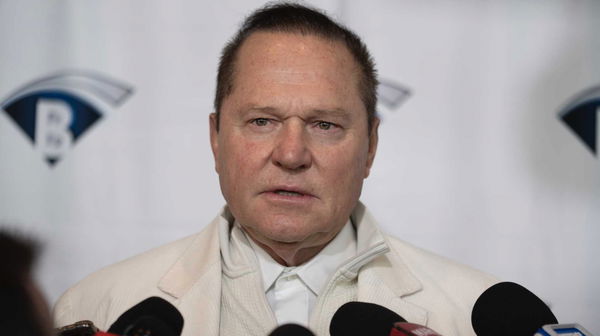

Baseball is America’s pastime, a sport built on tradition and passion. But beyond the bright lights and the diamond, another game is always in play—one of dollars and cents. While fans focus on the action, owners sharpen their financial strategies, often prioritizing profit over winning. Roster moves and massive contracts aren’t just about talent—they’re about the bottom line.
But what happens when the financial game shifts from fair play to rule-bending; when teams find ways to exploit the system rather than compete within it? That’s when baseball’s business side starts overshadowing the sport itself.
In a recent interview with Foul Territory, Scott Boras highlighted a key issue in MLB’s finances: the manipulation of revenue definitions. He explained that while most people think of revenue as ticket sales and merchandise, the real story in the MLB is far more complicated. “We discuss CBAs, and we have to talk about the business of baseball,” he said. He noted that these conversations often get ignored in favor of labor talks. Boras even compared MLB to the NBA and NFL, pointing out both had lockouts and salary caps. “NFL had a lockout of 136 days, 161 days in NBA and in the NHL 119 days.” His point? The business of baseball needs to be addressed before labor issues can be solved.
ADVERTISEMENT
Article continues below this ad
Scott Boras says that MLB has an issue with how owners define revenue. 💵🤔 pic.twitter.com/x24vEffswf
— Foul Territory (@FoulTerritoryTV) February 17, 2025
Boras explained how owners use financial tricks to present a misleading picture of their financial health. “What are the principal problems of a CBA negotiation? They are always based upon; we have to understand that owners are talking about what they have,” he said. He highlighted how owners divert revenue through investments. “Revenue definition is a monster in MLB,” Boras said, noting teams manipulate the financial system to avoid reporting some earnings. For example, when clubs invest in businesses near their stadium, the revenue doesn’t count as team revenue. Owners use these investments, through loans or debt-to-equity strategies, to inflate their wealth.
Boras made it clear that this financial strategy affects player compensation. “What we’re really talking about here is how we define revenue, and it’s a broad issue,” he said. This issue isn’t just a minor discrepancy—it’s a flaw in how baseball operates. Using loans and investments to create wealth doesn’t show up as revenue. The owners legally avoid paying players the actual value they have helped the team to create.
Scott Boras pointed out that the gap between how revenue is measured and how it should be accounted for creates a system that benefits owners over players. As Boras expressed his words, one thing is clear: the financial game behind the scenes is more intricate and complex than most fans realize. Until MLB takes a hard look at how it defines and reports its revenue, the players will keep fighting. They will fight for their fair share, but for a system that reflects the true value. Ultimately, it’s not about the MLB’s future but about the fairness of the game.
What’s your perspective on:
Are MLB owners exploiting the system, or is it just smart business? What's your take?
Have an interesting take?
The salary cap revolution: How MLB’s financial reset could impact the game
The introduction of a salary cap in the MLB would be a game changer. Influencing not only how players are paid but also how teams build their rosters. With financial constraints in place, teams would need to be more strategic with their spending.

ADVERTISEMENT
Article continues below this ad
The result would be a more balanced playing field for all, forcing teams to develop rosters that respect the financial boundaries. For high-spending teams like the Los Angeles Dodgers and New York Mets, a salary cap could significantly impact their current approaches. These teams are used to outspending others. However, with caps, they would be forced to adapt their strategies, reducing their ability to acquire elite talent. Meanwhile, small-market teams are typically at a disadvantage when it comes to signing top-tier players.
They would find the playing field balanced and equal. Salary caps would help these teams retain key players, preventing wealthier franchises from hoarding talent and creating a more competitive environment across the league. In the end, a salary cap would lead to a more balanced MLB, where teams—regardless of market size—have a fair shot at success. This would mean more intense competition, as teams would be focused on smart spending and developing talent rather than finding ways to avoid the rules.
ADVERTISEMENT
Article continues below this ad
ADVERTISEMENT
ADVERTISEMENT
ADVERTISEMENT
ADVERTISEMENT


Are MLB owners exploiting the system, or is it just smart business? What's your take?